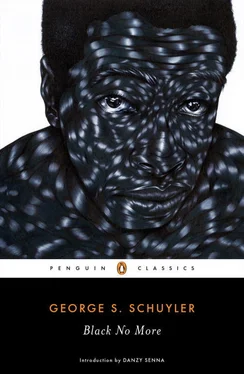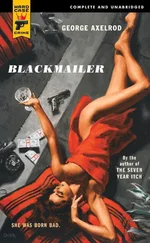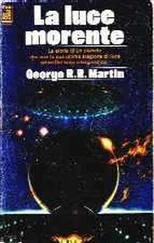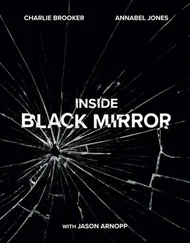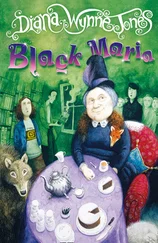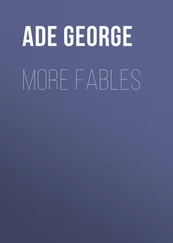George S. Schuyler
BLACK NO MORE
This book is dedicated
to all Caucasians in the great republic
who can trace their ancestry
back ten generations
and confidently assert that there are no
Black leaves, twigs, limbs, or branches on
their family trees
The first time I read George Schuyler’s 1931 novel, Black No More , it confused and unsettled me. I was in college at the time and not quite ready for its cynical, almost misanthropic vision of race and society.
I had just reached that stage of racial identity that psychologist William Cross, in his 1971 “Negro-to-Black Conversion Experience,” called “immersion.” The immersion stage (number three of five) is when you eat, drink, and excrete blackness. It’s when you bite off the head of anybody who questions whether you, no matter how high your yellow, are anything less than Afrika Bambaataa.
What unsettled me about Black No More wasn’t just what I knew of Schuyler’s vaguely messed-up politics (which became a whole lot less vague and a whole lot more messed up in the decades following the novel’s publication). It was also that Schuyler was so merciless—about everyone. At the exact moment I was finding power and purpose in my black identity, he was telling me race didn’t exist.
His stance was familiar to me. The truth was, he reminded me of my father, another black intellectual who was prone to making fun of everyone. It was my father who taught me how to laugh at race. As a child, I had already noticed that the discussion of race in white liberal America was always and only a discussion of blackness, never whiteness. In that space of earnestness, blackness became either magical or noble or tragic or essentially wicked. But in the black space of my father’s home, race was a far more multilayered conversation. Whiteness was named. Nothing was sacrosanct.
It was my father who told me the first racist jokes I’d ever heard—jokes written by white people at our expense. My father never laughed so hard as he did at those punch lines. Looking back, I think he was trying to teach me the art of black satire—showing me how to find the joke about whiteness hidden within a joke about blackness. I learned from my father how horror could become humor and all the ways humor could be horrifying. What I recognized in reading Black No More was a similar sense of the black absurd. But I was in college, three thousand miles from my original home and newly adrift, searching for a place to call home. Schuyler thumbed his nose at the very things I was trying to hold sacred.
I squirmed most while reading the chapter in which Schuyler takes down all those Black History Month heroes, especially his lampoon of Marcus Garvey. At eight years old I briefly attended an experimental Afrocentric school based on Garvey’s teachings—a miserable experience—but still, I wasn’t ready for Schuyler’s wicked rendering of the Garveyesque figure he renames Santop Licorice. Mr. Santop Licorice, Schuyler writes, had “for some fifteen years … been very profitably advocating the emigration of all the American Negroes to Africa. He had not, of course, gone there himself and had not the slightest intention of going so far from the fleshpots, but he told the other Negroes to go.” Schuyler demonstrates here, and throughout the novel, an awareness of the class politics of racial consciousness, writing of the way racial identity politics, like anything else, can become part of the capitalist production wheel:
Naturally the first step in their going [back to Africa] was to join [Licorice’s] society by paying five dollars a year for membership, ten dollars for a gold, green and purple robe and silver-colored helmet that together cost two dollars and a half, contributing five dollars to the Santop Licorice Defense Fund (there was a perpetual defense fund because Licorice was perpetually in the courts for fraud of some kind)…. [Licorice attempted] to save the Negroes by vicariously attacking all of the other Negro organizations and at the same time preaching racial solidarity and cooperation in his weekly newspaper, “ The African Abroad ,” which was printed by white folks and had until a year ago been full of skin-whitening and hair-straightening advertisements.
Schuyler doesn’t stop with Garvey. He pokes fun at James Weldon Johnson, the high-yellow Harlem Renaissance raceman who wrote that classic of tragic mulatto literature, The Autobiography of an Ex-Colored Man —and also wrote that song “Lift Every Voice and Sing,” otherwise known as the black national anthem, which I sang in a quavering voice every week with my fellow Black Student Union members to close out our meetings.
Schuyler’s most intense vitriol, however, is reserved for W. E. B. Du Bois, who can easily be recognized in the character of Dr. Shakespeare Agamemnon Beard, founder of the National Social Equality League. “For a mere six thousand dollars a year,” Schuyler writes of Beard,
the learned doctor wrote scholarly and biting editorials in The Dilemma denouncing the Caucasians whom he secretly admired and lauding the greatness of the Negroes whom he alternately pitied and despised. In limpid prose he told of the sufferings and privations of the downtrodden black workers with whose lives he was totally and thankfully unfamiliar. Like most Negro leaders, he deified the black woman but abstained from employing aught save octoroons. He talked at white banquets about “we of the black race” and admitted in books that he was part-French, part-Russian, part-Indian and part-Negro…. In a real way, he loved his people.
—
Black No More is based on a fantastical, speculative premise: What if there were a machine that could turn black people permanently white? What if such a machine were invented in and introduced to 1920s America, a time of both increasing racial pride and persistent racial violence? What would the social and political implications be of such a race-reversal machine? What would it reveal about society? What lies and hypocrisies about blackness and whiteness and American identity would be revealed by the chaos that would ensue?
The protagonist of Black No More , Max Disher, has no moral center: He is willing to do anything for personal gain. He is a black man who is so hungry for all that white America has withheld from him that when given the opportunity to turn white, he jumps at the chance to go in the Black-Off machine (a precursor to Dr. Seuss’s Star-Off Machine in The Sneetches )—as does all of Harlem. They want access to everything that whiteness will afford them: money, freedom, mobility, and power. Like Eddie Murphy in that famous 1980s SNL skit “White Like Me,” where he dons white pancake makeup and a straight-haired blond wig and goes undercover to discover that white privilege is much worse than he thought, Schuyler’s character discovers what he can get in the American marketplace when he is cloaked in a skin tone and bone structure and hair that are read as white. No other novel I’ve read before or since so baldly exposes whiteness as a valuable commodity.
In the Black-Off machine, Max Disher transforms into Matt Fisher, a white anthropologist. A novel about a black man becomes a novel about a white man who was black once upon a time. And yet while passing into white America, Max-turned-Matt consistently finds only disappointment in the so-called superior race. He mourns his lost blackness, and in doing so reveals the fallacy of white supremacy:
Читать дальше
